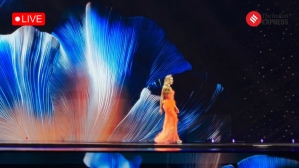Tickets for women
Remember that old Beatles' ditty which went: She's got a ticket to ride...? Well, that's just the point. Will Indian women get those crucial...

Remember that old Beatles’ ditty which went: She’s got a ticket to ride…? Well, that’s just the point. Will Indian women get those crucial tickets to contest the country’s 12th Lok Sabha elections or will they miss the bus yet again? All through those stormy months when the Constitution (81st Amendment) Bill, 1996, which reserved 33 and one-third per cent of seats in Parliament and state assemblies, was being debated in the House, many male politicians raised serious objections to it.
Some, like Samajwadi Party supremo Mulayam Singh Yadav even argued that instead of such reservations, political parties should ensure that at least 15 per cent of candidates fielded by them are women. Then there were those famous quotations from former Prime Ministers like BJP’s A.B. Vajpayee and the United Front’s H.D. Deve Gowda that no political party can survive by opposing justice for women. Also, let I.K. Gujral’s brave words not be forgotten. He recently admitted that he viewed his inability to pass the Women’s Bill as one of his great failures as a Prime Minister.
If these honourable men really meant what they said, then the time has come for them to put their money where their mouth is and ensure that their parties field a significant number of women in the coming general elections.
Unfortunately, present trends are not indicative of such an outcome. Take the BJP’s just-released list of 202 candidates. Only 16 of the names announced happened to be those of women which works out to about 8 per cent representation thus far. This falls far short of the party’s self-declared goal of politically empowering women. Hopefully, the party will seek to correct the balance in its next list of candidates. Then there is the case of Congress Party President Sitaram Kesri not even bothering to meet the delegates of the National Commission of Women who had wanted to urge him to ensure that his party does well by its women candidates. Kesri could perhaps recall that during the 1931 Karachi session of the Indian National Congress, his party had committed itself to the political equality of both sexes.
One of the points raised against granting 33 and one-third per cent reservation for women is that it would, essentially, be an undemocratic measure and that men and women must campaign electorally on a level playing field. This is, without doubt, a worthy argument, but its validity hinges on political parties not discriminating against women in their selection of candidates. One of the reasons why the 11th Lok Sabha saw women occupy less than 7 per cent seats had a lot to do with the fact that only 3 per cent of party tickets went to them.
It’s not a Sonia Gandhi or a Uma Bharati, or even a Mamata Banerjee that signifies the arrival of women on the Indian political stage. It is, rather, the presence in significant numbers of ordinary women candidates fighting for a place in the sun like their male counterparts. Political parties can make this happen by consciously supporting and promoting them.





- 01
- 02
- 03
- 04
- 05


























